
Effective Tips to Reduce Leg Pain
Leg pain refers to the pain that can occur in knees, foot and other parts of the legs, and interferes with the normal functioning of the body. There are many causes of leg pain. Most commonly, pain is due to a twinge, muscle spasm, muscle tiredness, arthritis, lack of calcium, body weakness, or standing for a long time. Here we have some home remedies for your leg pain. Try these at home and ease your leg pain.
Epsom Salt Soak
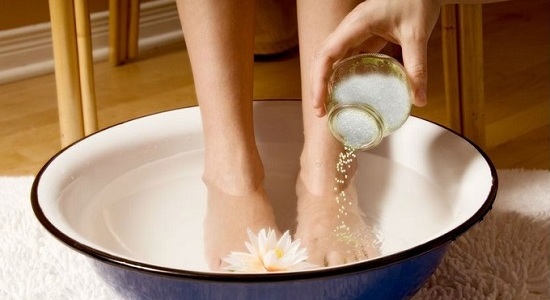
Epsom salt contains magnesium, an important electrolyte that helps regulate nerve signals in the body. It even works as a natural muscle relaxant and helps reduce pain, inflammation and swelling.
- Add ½ cup of Epsom salt to a hot bath and stir it well.
- Soak your legs in this water for 15 minutes.
- Repeat 2 or 3 times a week.
Apple Cider Vinegar
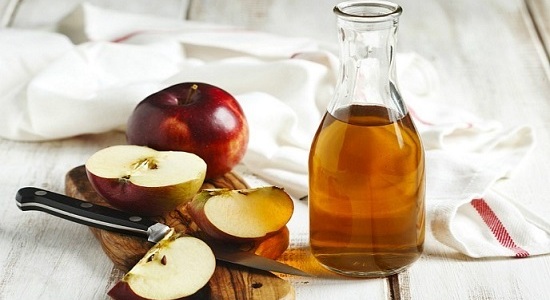
Apple cider vinegar can also help decrease pain in your legs. It is mainly beneficial for arthritis and gout pain. Its alkalizing effect helps dissolve uric acid crystals in the blood.
ACV also helps remove the buildup of toxins in the joints and connective tissues. In addition, it provides potassium, calcium and other essential minerals needed to ease pain and inflammation.
- Add 1 to 2 cups of raw, unfiltered apple cider vinegar to a bathtub of warm water.
- Soak the affected leg in the water for 30 minutes, once daily for a few days.
- Also, mix 1 to 2 tablespoons of raw, unfiltered apple cider vinegar in a glass of warm water, add a little raw honey and drink it twice daily.
Oil Massage
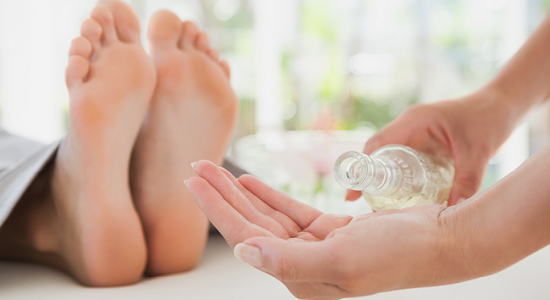
Massage promotes faster recovery from muscle damage that causes leg pain. In addition, massage improves blood circulation and helps relieve stress and anxiety.
- Rub some warm olive, coconut oil or mustard oil on the affected area.
- Using gentle yet firm strokes, massage your legs for about 10 minutes.
- Do this 2 or 3 times daily as needed.
- You can also use a self-massage device.
Turmeric Treatment for Leg Pain
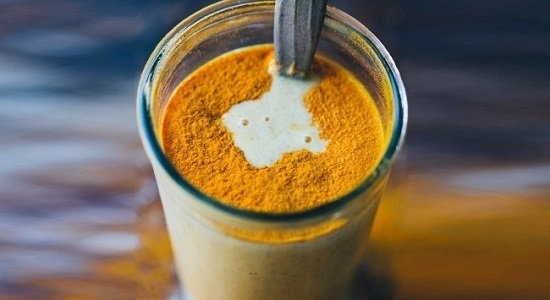
Additional effective home remedy for leg pain is turmeric, which has antioxidant as well as anti-inflammatory properties.
- Mix 1 teaspoon of turmeric powder with enough warm sesame oil to make a paste.
- Apply it on the affected area and rub gently.
- Wait 30 minutes before rinsing it off with warm water. Do this twice daily as needed.
- Also, drink a glass of hot turmeric milk once or twice daily.
Cold Compress
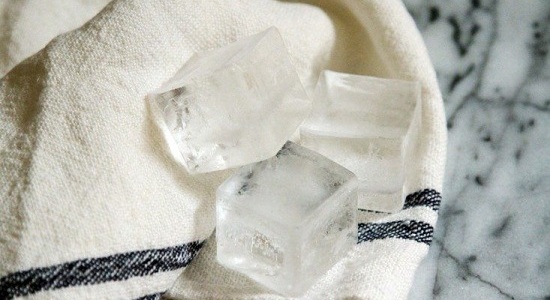
When leg pain arises after a physical activity, you can simply apply cold compresses. This will help reduce the pain by numbing the affected area and control swelling and inflammation.
- Wrap a few ice cubes (or a bag of frozen peas) in a thin towel.
- Apply this pack on the affected area for 10 to 15 minutes, while keeping the leg elevated.
- Do this a few times a day.
Ginger for Leg Pain

Ginger contains anti-inflammatory properties that help reduce pain and inflammation. It even improves circulation and blood flow, which helps relieve muscle pain.
- Massage the affected area with ginger oil 2 or 3 times a day until the pain subsides.
- Also, drink ginger tea 2 or 3 times daily. To make ginger tea, simmer fresh ginger slices in a cup of water for 5 to 10 minutes. Add some lemon juice and raw honey for taste.
- If opting to take a supplement, consult your doctor first.
Note: Avoid excess ginger intake as it can thin the blood.
More Tips for Leg Pain:
- You can apply a gel containing 0.0125 percent capsaicin topically to reduce pain.
- Drink 2 to 3 cups of green tea daily.
- Eat 1 teaspoon of yellow mustard with a glass of water twice a day for a few days. It prompts the body to use a neurotransmitter that promotes better muscle functioning.
- Keep your blood pressure and cholesterol under control.
- Avoid smoking as well as secondhand smoke.
- If you have diabetes, take steps to manage your blood sugar level. Here are 10 tips to control diabetes.
- Reduce stress to help alleviate your symptoms.
- Always take time to stretch before and after exercising to prevent leg pain.
- Do gentle stretching exercises for 10 minutes daily.

